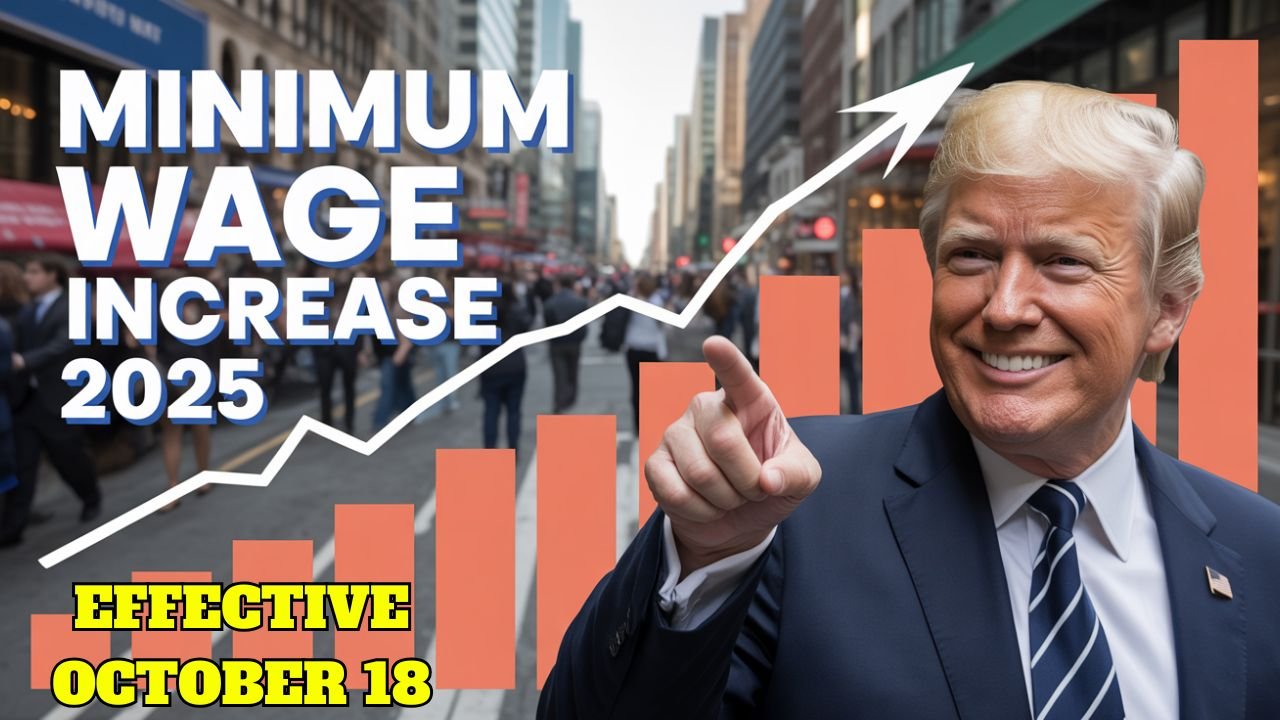U.S. Minimum Wage Increase 2025: Soon, good news will come to millions of workers in Florida. The minimum wage will be raised from $13 to $14 per hour from September 30, 2025, onward. This increase is in line with the new constitution approved in 2020, which provides for a $1 increase every year until the wage is $15 per hour in 2026.
This change was greatly influenced by lawyer John Morgan, who passionately pushed for the wage hike, referring to the increasing prices of housing, food, health care, and public transport.
Florida Minimum Wage Schedule 2021–2026
The wage increment follows a resorted program. Every year, the minimum wage adjoins $1 until it gets $15 in 2026. Afterwards, in 2027, the increases will be dependent on inflation.
Year-by-Year Breakdown
| Year | Standard Minimum Wage | Base Pay for Tipped Employees |
|---|---|---|
| 2021 | $10.00 | $6.98 |
| 2022 | $11.00 | $7.98 |
| 2023 | $12.00 | $8.98 |
| 2024 | $13.00 | $9.98 |
| 2025 | $14.00 | $10.98 |
| 2026 | $15.00 | $11.98 |
This also benefits tipped employees like restaurant servers, bartenders, and hotel staff. In 2025, their base pay will increase from $9.98 to $10.98. Employers must ensure total earnings (base pay + tips) meet the $14 minimum. If tips fall short, the employer must cover the gap.
Post not found.
Why Florida Is Raising the Minimum Wage
This wage hike is more than a policy—it’s a constitutional amendment. Key reasons include:
- Rising Inflation: Food, housing, gas, and healthcare costs are constantly increasing. Workers need higher wages to afford basic living expenses.
- Voter Mandate: A majority of Florida voters approved the plan in the 2020 referendum.
- Support for Tipped Employees: Service industry workers face fluctuating tips, so a higher base wage offers greater financial security.
Benefits of the $14 Minimum Wage
- A full-time worker (40 hours/week) will earn about $160 extra per month or $2,000 more per year.
- Extra income can help cover rent, groceries, medical bills, and education costs.
- Tipped employees gain a safety net, ensuring they receive at least $14/hour regardless of tip fluctuations.
For example:
If a server earns $10.98 base pay + $2 in tips = $12.98, the employer must add $1.02 to meet the $14 requirement.
Employer Responsibilities Under the New Wage La
Businesses must comply with the updated minimum wage law by:
- Updating workplace posters to display the new wage.
- Adjusting payroll systems for accurate calculations.
- Ensuring transparency, especially for tipped employees.
Failure to comply can lead to fines, legal action, or wage claims.
Why the 2025 Increase Matters
The increment of $1 is not only going to be reflected in the number but it also signifies a step towards the equalization of salaries. The minimum wage would be $15/hour in Florida by 2026 and many families would be financially secure.
In addition, the increase in wages would give workers more money to spend and thus, together with local businesses, the economy of Florida would get a lift.
Frequently Asked Questions (FAQ)A1: The minimum wage will be $14 per hour.
Q1: What will the minimum wage in Florida be on September 30, 2025?
A1: The minimum wage will be $14 per hour.
Q2: What will be the base pay for tipped employees in 2025?
A2: Tipped workers will earn a minimum base wage of $10.98/hour.
Q3: When will Florida’s minimum wage reach $15 per hour?
A3: On September 30, 2026.
Q4: What should employers do to comply with the new wage law?
They must update workplace posters, adjust payroll systems, and ensure tipped employees receive at least the minimum wage.
Q5: How does the $14 minimum wage benefit workers?
It provides an extra $2,000 per year for full-time employees, offering greater financial security and boosting local spending power.
Conclusion
The Florida minimum wage increase in 2025 is a positive step for workers and the economy. By ensuring a gradual rise to $15/hour, Florida is protecting workers from inflation while boosting local businesses.
The real question now is: Will other states follow Florida’s lead and introduce similar constitutional amendments to secure fair wages for all workers?

